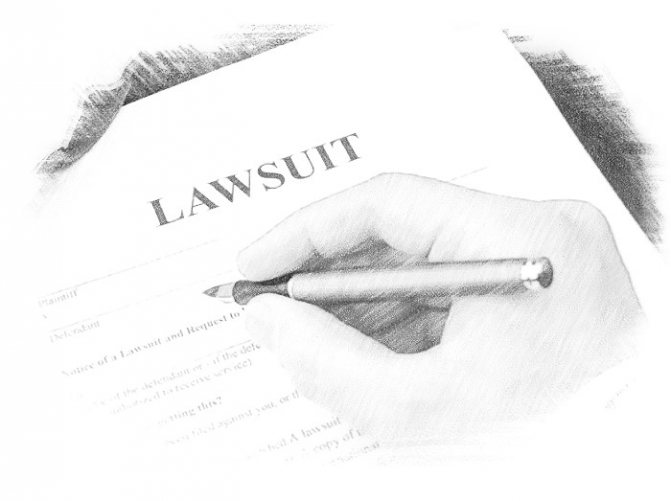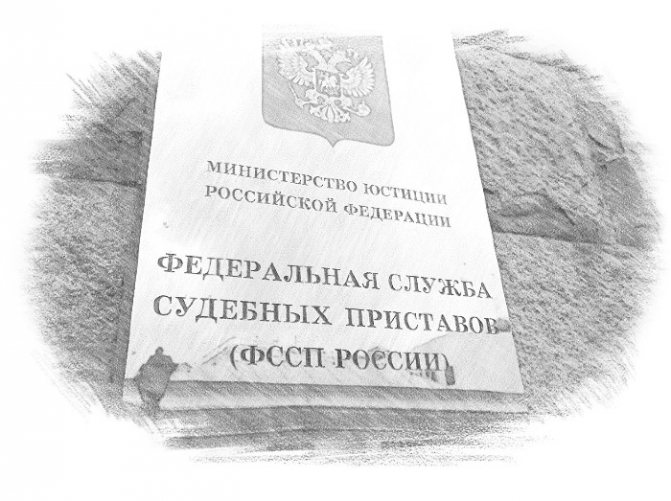Bankruptcy of individuals
Federal Law No. 127-FZ of October 26, 2002 “On Insolvency (Bankruptcy)” provides for the following bankruptcy procedures for individuals: restructuring of a citizen’s debts, sale of a citizen’s property, settlement agreement.
Moreover, the introduction of each procedure by the arbitration court implies the onset of certain legal consequences.
According to paragraph 9 of Article 126 of the Bankruptcy Law, from the date the Arbitration Court makes a decision to declare the debtor bankrupt and to open bankruptcy proceedings, previously imposed arrests on the debtor’s property and other restrictions on the disposal of the debtor’s property are lifted. The basis for lifting the seizure of the debtor's property is a court decision declaring the debtor bankrupt and opening bankruptcy proceedings. The imposition of new arrests on the debtor's property and other restrictions on the disposal of the debtor's property are not permitted.
Removal of seizure from property is carried out in accordance with the current legislation of the Russian Federation.
Thus, from the date of the arbitration court’s ruling recognizing as justified the application to declare a citizen bankrupt and the introduction of debt restructuring:
— previously imposed arrests on the citizen’s property and other restrictions on the disposal of the citizen’s property are lifted. Seizures on a citizen’s property and other restrictions on the disposal of a citizen’s property can only be imposed in the process of a citizen’s bankruptcy case;
— during the restructuring of a citizen’s debts, the debtor may enter into transactions or several interrelated transactions, including those related to the acquisition or alienation of real estate, transferring the citizen’s property as collateral; only with the prior written consent of the financial manager
- does not have the right to contribute his property as a contribution or share contribution to the authorized capital or mutual fund of a legal entity, to acquire shares (shares, shares) in the authorized (share) capital or mutual funds of legal entities, as well as to make transactions free of charge for the citizen;
In accordance with the Bankruptcy Law, after the court makes a decision to introduce the sale of a citizen’s property, the following consequences occur:
- all rights in relation to the property constituting the bankruptcy estate, including the disposal of it, are exercised only by the financial manager on behalf of the citizen and cannot be exercised by the citizen personally;
- transactions made by a citizen personally (without the participation of a financial manager) in relation to property constituting the bankruptcy estate are void. Previously imposed arrests on the citizen’s property and other restrictions on the disposal of the citizen’s property are lifted;
— registration of the transfer or encumbrance of a citizen’s rights to property, including real estate, is carried out only on the basis of an application from the financial manager. Citizen applications submitted before this date are not subject to execution;
fulfillment by third parties of obligations to a citizen to transfer property to him, including the payment of funds, is possible only in relation to the financial manager and is prohibited in relation to the citizen personally.
During the procedure for the sale of the debtor's property, real estate, as well as property encumbered with a pledge, is subject to sale at auction, regardless of cost.
If the financial manager is unable to sell the property belonging to the citizen in the prescribed manner and the creditors refuse to accept the said property to pay off their claims, after the completion of the sale of the citizen’s property, his right to dispose of the said property is restored. In this case, the property that constitutes the bankruptcy estate and has not been sold by the financial manager is transferred to the citizen under an act of acceptance and transfer.
The conclusion of a settlement agreement is the basis for terminating bankruptcy proceedings against a citizen.
The decision to conclude a settlement agreement on the part of the debtor-citizen is made by the citizen.
The settlement agreement is approved by the arbitration court.
If a settlement agreement is concluded, the implementation of the citizen’s debt restructuring plan is terminated, as well as the moratorium on satisfying the claims of creditors.
From the date of termination of bankruptcy proceedings against a citizen, in connection with the conclusion of a settlement agreement, all restrictions provided for by the Bankruptcy Law cease to apply, and the powers of the financial manager cease to apply.
Conditions for preserving your only home during bankruptcy
Bankruptcy involves writing off a borrower's debts if he can no longer pay them. But at the same time, the demands of creditors must be satisfied. This means that the bankrupt will pay for his debts with his own property.
The law strictly stipulates that individuals can be taken away in the event of bankruptcy. faces. This:
- cash and assets;
- furniture and household appliances more expensive than 10,000 rubles;
- luxuries;
- expensive clothes;
- car, etc.
In this case, personal belongings, toys, children's clothing, medicines, food, household items, tools for earning money and other similar property are not subject to confiscation. If you prove that you need the car for work, the court may leave it.
The question of whether the apartment will be taken away or not is especially acute. Nobody wants to stay on the street.
If the home is the only one, then they cannot take it away for debts. But if the bankrupt has other real estate, for example, a share in his parents’ apartment or a private house suitable for living in, the apartment will be seized and sold at auction, and debts to creditors will be repaid from the funds received.
The law specifies under what circumstances bailiffs have the right to seize a single apartment, even if those living in it have a share. If the apartment is pledged to the bank, then it is confiscated in its favor, and the bankrupt must leave the premises.
Verification of seizure
Do you suspect that your property is at risk? Want to check information about your friends? There is no need to wait for messages that there will be an inventory of the debtor’s property by bailiffs.
This can be done via:
- Rosreestr website;
- visit to the FSSP.
In the first situation, go to the section “Reference information on real estate objects online”. Then write the street, house and apartment number. Click "Generate request". If there is nothing in the search, then there is no information in the registry.
You can check if there are restrictions on the apartment. To do this, go to the “Rights and Restrictions” item. If there are no claims against you from the court, then there will be nothing on this page.
You can check whether the property has been seized and what the amount of debt is at your FSSP department. Provide your passport and application there, and you will find out all the necessary information within 7 working days.
When you discharge your debt obligations, the court will return all material assets, money and living space. The only point: debt removal can take from one week to several years. To speed up the process, you can write a complaint to the chief bailiff against his colleague of a lower rank. This action speeds up your receipt of results on the status of things.
How to remove a seizure from your property
Restrictions on the use of things for debts can be imposed by a court or a special state executive service. However, please note that if this is a judicial seizure of property, it can only be removed by a judge’s decision.
The conditions for suspension of seizure are specified in Art. 39, Federal Law “On Enforcement Proceedings”. This includes:
- Demonstration of claim for relief of injunction.
- Refuting the results of property valuation.
- Refuting the decision to collect the enforcement fee.
The court may suspend the seizure in whole or in part in the manner specified in the procedural legislation.
The conditions for releasing property from seizure are proof of the illegality of the decision, or provision of information that the parties (creditor and debtor) have reached an agreement (for example, the required amount has been paid.
Claim for release of property from seizure
In the case when all actions were carried out by the executive service, then it is possible to cancel them thanks to a court decision. The first point is the agreement between the lender and the borrower. The second point is possible if certain procedures were violated during the seizure (there were no witnesses, signatures were forged, etc.). Third, it was impossible to carry out the seizure.

It is important to have a good lawyer in order for property to be released from seizure. It will help you draw up a competent statement in which you need to indicate:
- Name of the court where the claim is filed.
- Information about all participants in the case.
- Data from the register maintenance act.
- Plaintiff's claims.
- Date and signature.
Next, the application must be sent to the court. After registering it, take a copy that shows the incoming number and stamp.
It is important
When filing a claim, you must attach to the application all the papers that relate to the seizure procedure, a receipt for payment of the state duty, and documents for the property that confirm that you are its owner.
The arrest is lifted in stages:
- The reason why it was imposed is being clarified. If these are mortgage arrears, then it will be removed when the debtor resumes payments. If these are tax debts, then, accordingly, it will be canceled after payment of duties and penalties.
- State duty is paid. This is done by the owner of the property, since he still needs to prove the ownership of all things. Documents for confirmation: certificate of ownership, certificate from the bank, payment of debts.
- The court sets a time for hearing the case. The deadlines are always individual in each case. The owner must be involved in the case. Without it, papers will take too long to be transferred from one government agency to another, and the process may drag on for a couple of months. A court hearing may be postponed for various reasons, including the failure of one of the parties or witnesses to appear. After considering the application, a decision is made. It will be announced at the second meeting.
After a positive decision, the writ of execution is transferred to the FSSP. The ban on use is considered lifted when the court decision has entered into force. The plaintiff is given a new document indicating that ownership is being renewed.

Enforcement proceedings or bankruptcy? What is better for the debtor?
The bankruptcy law came into force on March 1, 1998. Changes allowing citizens to undergo bankruptcy proceedings only came into force on October 1, 2020. Bankruptcy, by its legal nature, is closely related to the Federal Law of the Russian Federation “On Enforcement Proceedings,” which regulates the procedure for collecting debt from an individual.
In our country there is a body for the enforcement of court decisions. The Federal Bailiff Service is a federal executive body that is part of the Russian Ministry of Justice. A relatively young institution, it was created in November 1997 during the rule of the country by Boris Yeltsin. Bailiffs not only collect debts, but also protect courts throughout Russia, ensure the established order of court activities, and provide security for judges and court staff.
For a debtor, bankruptcy can be a lifeboat. After the bankruptcy procedure, debts can be completely written off. And for the creditor, perhaps, this is not the best development of events, since he will be deprived of the opportunity to repay his debt, if the debtor lacks liquid property, and nothing can be done about it.
If you have ever tried to collect money through a bailiff, then you probably know that collection can take years. Sometimes there is nothing you can do about it. You can find out how bailiffs describe property in this article. Bankruptcy will come to our aid. It will be more difficult to hide property from the creditor since the bankruptcy trustee and creditors have the right to appeal all transactions of the debtor over the past three years. Thus, if the debtor decided to hide his property by signing a fictitious contract of sale or gift, then such transactions can be challenged, which will allow creditors to foreclose on the debtor’s property and receive money.
Thus, the institution of bankruptcy of individuals gives more powers to creditors, but also poses some dangers for the debtor (challenging the debtor’s transactions, possible restrictions on travel, inability to participate in the management bodies of a legal entity). Therefore, before filing for bankruptcy, weigh the pros and cons. Perhaps enforcement proceedings will be the most beneficial solution
Common questions on the topic
Question: Proceedings have been initiated against me. I don’t want my property to be sold at auction by the bailiff, will bankruptcy help save my property from being sold, because all the bans will be lifted, the property can be sold?
The only housing in case of bankruptcy of an individual
The question of how to preserve property and become bankrupt interests many debtors. It is worth noting right away that illegal actions such as fictitious sales or bribery of a manager will not be considered further. There are legal methods for maintaining home ownership:
- Carrying out restructuring through the court or by agreement with the bank. Most often it works when the borrower has only one lender, who is also the holder of the only collateral for the home. Restructuring is more interesting for him, since he will receive the entire debt plus interest, and not 70% of the collateral.
- Carrying out restructuring through another bank. In this case, a regular loan is taken out, with the help of which the existing mortgage agreement is repaid, and the apartment is released from collateral. If it is the only one, it will remain with the borrower. But such an action must be carried out in advance, since not a single bank will contact a potential bankrupt.
- Sale of property. Another way to save your home is to sell it to a close relative or friend. But you need to take into account that the financial manager has the right to protest all transactions made over the last 3 years. If he proves that the sale of housing was fictitious, the transaction will be terminated.
- Conclude a prenuptial agreement with division of shares. In this case, housing will still be lost. But the bank will be obliged to return the borrower’s wife money proportional to the value of her share (after withdrawing the loan body and interest). After the funds are transferred to the spouse, the family will be able to purchase another home.
- Inclusion of children. In this case, the sale of housing cannot take place without the approval of the guardianship and trusteeship authority, and they, naturally, will not give it. But it will not be so easy to allocate a share to children during bankruptcy - this must be done either before taking out a mortgage with the consent of the bank, or after removing the encumbrance, i.e., repaying the loan.
In any case, a potential bankrupt needs the advice of a professional lawyer specializing in insolvency cases to help preserve his property.
If the debtor does not have any property, and the seizure of the only home does not occur, then the court has no choice but to recognize the debts as hopeless and write them off. In this case, you cannot get rid of the need to pay:
- alimony;
- employee salaries;
- debt for housing and communal services;
- payments ordered by the court in some cases.
Immediately after bankruptcy, the former debtor will be subject to the following restrictions:
- he will not be able to hold a leadership position in the company or be a civil servant;
- will not have the right to engage in business for 5 years;
- he will carry out most major transactions with the approval of the manager.
And also, a bankrupt will not be able to take out new loans and borrowings without first notifying the lender of his financial insolvency.
We suggest you read: Recalculation of the loan in case of early repayment of the loan
How to check whether enforcement proceedings have been introduced
https://www.youtube.com/watch{q}v=kXtP6lsHHwU
It is quite simple to check whether the debt is registered with the bailiffs. To do this, you need to use the official website of the bailiff service, where all the information you need is located. The procedure is as follows:
- in the main menu, go to the “Services” section, from there – to the data bank;
- select a search option: by the name of the citizen, by the name of the individual entrepreneur or by the number of the writ of execution;
- indicate the region of Russia where the debtor presumably lives (you can select the entire country);
- fill in the required details;
- click on the search button.
We invite you to familiarize yourself with: Bankruptcy and liquidation of a legal entity.
The final information will be provided in the form of a table - it will display:
- FULL NAME. and date of birth of the debtor.
- Case number and date of initiation.
- Details of the executive document.
- Date, reason for termination or termination of the IP.
- Subject of execution, amount of outstanding debt.
- Bailiffs Department.
- Name of the bailiff.
You can indicate not complete, but only known data - for example, the payer's last name. In this case, all owners of the surname will appear in the table. You can determine who exactly you need based on other data.
You can check the presence of arrests and restrictions imposed on property using the official websites of the following departments:
- Rosreestr - you can order a certificate indicating whether the property is under arrest or encumbrance;
- Traffic police - on the inspection website you can find information about whether restrictions are imposed on the car;
- on the websites of arbitration courts - it is worth doing a search by the address of the property to find out whether it is the subject of a legal dispute and whether the court has made any decisions in relation to it.
Suspension of enforcement proceedings in bankruptcy
Technically, the writ of execution should terminate as soon as a decision of the arbitration court is received to transfer the debtor to bankruptcy status. Simultaneously:
- the arrest of the bankrupt’s property is lifted, since it is now subject to collection for the purpose of subsequent sale;
- the borrower's bank accounts are unfrozen;
- the debiting of funds from the debtor’s income is stopped;
- the ban on traveling abroad is lifted (at the request of creditors, the court may prohibit the debtor from leaving the country).
Sometimes a situation arises when, during a meeting, the applicant is declared bankrupt, but the bailiffs do not terminate the case and continue to write off money or do not allow the property to be disposed of.
https://www.youtube.com/watch{q}v=RzyZX2AbttE
Most often this occurs for a simple reason: representatives of the FSSP did not receive a notification from the arbitration manager about the suspension of collection. For example, due to the fact that the arbitration court and the bailiff service, where the writ of execution is located, are located in different regions.
In addition, bailiffs may not notify the employer of the termination of production. Then the arbitration manager must notify him and demand that the collections be stopped.
Both the bailiffs and the employer, after receiving the notice, must notify the manager in writing of the suspension.
The third reason why the collection case does not stop will be the presence of exceptions provided for by law. For example, the suspension does not apply to alimony. The bailiffs or the employer will still transfer part of the bankrupt’s funds to the recipient.
The federal law regulating enforcement proceedings, namely Article 69.1, stipulates exceptional cases when the suspension or complete cancellation of enforcement actions does not occur. This:
- payment of alimony;
- collections for current payments - fines, taxes, utility bills, etc.;
- collection of wages owed by individual entrepreneurs to employees;
- compensation for damage to health, if there is a corresponding court decision;
- compensation for damage to someone else's property.
During the bankruptcy procedure, these obligations are not written off and remain with the borrower - he will be obliged to repay them after other debts are recognized as bad.
The bailiff has the right to leave the seizure of the debtor's property if proceedings have been initiated against the property. But under one condition: the price of the seized property is not more than the amount of debt that cannot be written off.
Thus, the property may be subject to enforcement outside the bankruptcy case. For example, the debtor has a car worth 250 thousand rubles. The amount of his alimony debt is 300 thousand rubles - and this debt is not written off in bankruptcy. Consequently, the bailiffs have the right to leave the arrest on the car in force - and even confiscate it if they realize that the debtor will not have the opportunity to pay.
If the cost of the car is 500 thousand rubles, then it cannot be claimed within the framework of this writ of execution.









